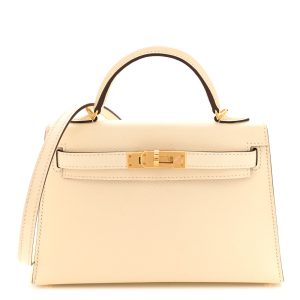The Allure of Be Roma's Sustainable Saint Laurent Clutch Replica: A Fashion Must or Bust?
Gone are the days when the echelons of high fashion were accessible only to a privileged few who could walk the marble floors of haute couture houses and breathe the rarified air of exclusivity. In the current digital age, luxury fashion has extended its runway into the sprawling alleys of the internet, where anyone with a screen and a penchant for the finer details can partake in the glamorous festivities of designer goods. One such confluence of luxury and the digital domain is exemplified by the saint laurent clutch replica by Be Roma – an ethical and sustainable alternative to the classic Saint Laurent clutch, beloved by the style elite, but at a fraction of the original cost.
But as we weigh the sheen of this sustainable luxury against the dark underbelly of the replica market, we must ask – is it a beacon of accessible luxury or a tarnish on the hallowed halls of designer integrity? This blog post unravels the threads of this complex tapestry, offering insights into the allure of the Saint Laurent clutch, the ethical quandaries of replicas, and the sustainable thread woven by Be Roma into the fabric of the luxury industry.
Understanding the Appeal of Saint Laurent Clutch
Luxury fashion, particularly accessories, has a distinctive power to transform. The Saint Laurent clutch, with its sleek lines and undeniably Parisian flair, epitomizes this transformational quality. It’s not just a bag; it’s an icon of luxury emblematic of the YSL fashion legacy. The appeal lies not only in its design but in its ability to elevate an ensemble, to confer a sense of sophistication and status that whispers, rather than shouts, absolute elegance.
What sets a Saint Laurent clutch apart is not just its name but the meticulous craft that goes into creating each piece. The choice of materials, the attention to detail, the stylistic heritage, and brand identity – these are the confluences that build the mystique and marketability of a ‘YSL’ product. The psychological appeal of luxury ownership is often as compelling as the product itself, anchoring personal identity and aspiration to the tangible item.
The Rise of Replica Culture
Luxury's digital footprint has given simulacrums a platform that, at times, overshadows the original. The replica market has surged with the ease of online transactions, offering budget-friendly approximations of designer pieces. Akin to a fashion bootleg, these replicas range from the insidious counterfeit, complete with false branding and dubious origins, to the legal, high-quality replica, earnestly marketed as a separate entity with its name.
Replicas raise ethical debates within the fashion industry. The allure of owning a luxury item at a fraction of the cost is undeniable, yet it throws into question the sustainability of consumption and the integrity of intellectual property. There's also the matter of supporting potential criminal organizations involved in the counterfeit trade. Despite these reservations, the consumer demand persists and speaks to a larger conversation about access and elitism within fashion.
Be Roma: A Sustainable Luxury Alternative
In the midst of this fraught landscape, Be Roma emerges as a distinctive yet controversial figure in the replica market. The brand doesn't just replicate luxury; it redefines it, anchoring its foundation on the principles of sustainability and ethical production. The Be Roma Saint Laurent Clutch replica stands as a testament to this dual identity, capturing the essence of the coveted YSL accessory without the environmental and ethical baggage often associated with replica purchases.
The quality and craftsmanship offered by Be Roma extend to their rigorous sourcing of materials, fair labor practices, and a commitment to reducing fashion's carbon footprint. It reimagines luxury as not merely the domain of exclusivity but as a sustainable lifestyle accessible to a conscientious consumer. Be Roma's sustainable replicas challenge the status quo, asking luxury enthusiasts to pursue their passions with a mindful eye on the world they shape.
SEO and the Online Luxury Market
The online realm is the theater of the luxury fashion show, and search engine optimization (SEO) is the stylist that ensures the visibility and allure of the showcased garments. In the intensely competitive space of online luxury, SEO strategies can make or break a brand. Rich, metadata-driven content, strategic backlink building, and keyword targeting become the measures of success, defining the luxury brand's position amidst a sea of digital window shoppers.
For luxury replicas, SEO is a double-edged sword. The right keywords and content can direct the ethically minded enthusiast to sustainable alternatives like Be Roma, offsetting the replica market's stigma with authenticity and sustainability. However, a misstep can lead a consumer to counterfeit territory instead, tarnishing both brand reputation and consumer trust.
Conclusion
The Saint Laurent clutch replica by Be Roma encapsulates the dynamic interplay between luxury, sustainability, and the digital economy. It acts as a polarizing symbol within the fashion industry, challenging the inherent exclusivity of luxury brands while advocating for a more ethical and accessible approach to high fashion.
Ultimately, the choice to purchase a luxury replica is a deeply personal one, shaped by values, aspirations, and the understanding of broader ethical implications. The market may continue to evolve, driven by a complex interplay of consumer demand, brand response, and the digital strategies that fuel it.
As the luxury industry grapples with the constant push-pull between tradition and transformation, Be Roma's sustainable luxury stands as a testament to the potential harmony between opulence and ethics. Whether it's a fashion must or a bust, the replica culture is undeniably shaping the way we perceive and consume luxury – and Be Roma's clutch, though a replica, is an exemplar of the potential to do so in a way that's not just chic, but conscientious.




Comments
Post a Comment